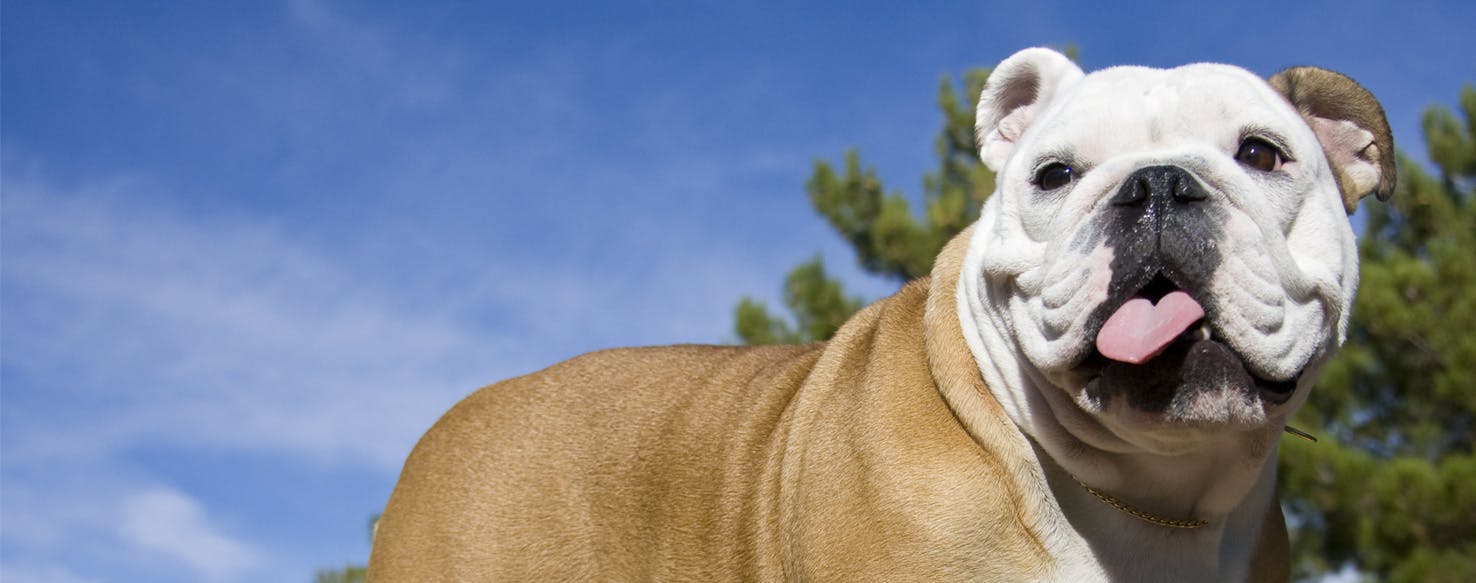- Home
- The Daily Wag!
- Behavior
- Why Do Dogs Snort

Common
Normal
What on earth was that noise that just came out of your dog? Something that sounded like a pig snorting or a combination sneeze, cough, gat, and hiccup may be the best way to describe it. If this has ever happened to you then you are not alone. Most people simply refer to this strange sound as a snort. Which then brings up this question: why do dogs snort? It is a valid question, that may have no 100% definitive answer. There are a vast number of speculations, and a lot of veterinarians and dog experts tend to agree on the actual sound, and most of the causes.
While we may refer to the sound just described as a snort, most experts more often refer to the action as reverse sneezing. That may sound strange, but in reality a snort is quite simply the reverse of sneezing. When sneezing, your dog has an involuntary reaction that forces an outflow of air from their lungs. This air exits through the mouth and nose and results in a sneeze. With a snort, it is the direct opposite action, and is also usually a voluntary action.
In either the case of a snort or a sneeze the goal may be the same. When your dog voluntarily snorts, or reverse sneezes, he or she may be trying to remove an obstruction in their airway. Similar to we humans your pooch may have debris or fluid obstructing their upper airway and need to have a means of removing it. The strange snorting sound may just be their method of clearing the air, so to speak.
Another concern that experts mention is your pet's weight. Obesity and excess weight can lead to a more frequent occurrence of snorting. Overweight dogs generally exhibit similar symptoms to those who may be suffering from irritation or obstruction of their airways. The excess weight that you pet is carrying can lead to them having a difficult time breathing and feeling as if there is something hindering the flow of air.
One especially interesting thing to note is that certain breeds or types of dogs may be more prone to snorting than others. In the case of smaller breeds they will have smaller airways. This can lead to more frequent snorting than a larger breed. Similarly, any dog having a shorter face will have a longer soft palate. Again, this physical feature may cause your pooch to snort more often than a dog with a slightly longer face.
Need advice about your pet's health?
Get answers fast from a veterinary professional 24/7 in the Wag! App.
Get Vet ChatWhile the occasional snort is nothing to be overly concerned about, you may want to contact your vet if you notice that Rover is snorting quite often. There are methods that can you can learn to check and possibly clear your dog's airway, but few experts feel this is necessary. A quick glance in their mouth and throat could help you see if there is anything obvious, but a call or trip to the vet is ideal if snorting seems to be prolonged or extremely harsh.
Snorting, or reverse sneezing, is not a common occurrence in most dogs, but almost all will have a few episodes in their life. In the majority of these episodes they will be temporary and infrequent. Whatever issue has caused the snore will most likely resolve on its own and leave no negative aftereffects. Infrequent episodes of snorting (reverse sneezing) does not take away from your pup being able to lead a perfectly normal, healthy life. Most of the episodes are harmless and don't require any medical treatment.
If you have doubts, or feel there is a more major issue present then calling your vet right away is ideal. Be prepared to thoroughly describe what's happening. They will want to know about the exact sounds, body reactions, and events leading up to the episode. Have all of this information ready for them before you call.
As most snorting or reveres sneezing episodes are harmless some may think there isn't anything to worry about at all. That is simply not the case. One thing to be aware of is that episodes of reverse sneezing can make your sweet fur baby quite anxious. So it is important for you, their pack leader, to stay calm and don't panic. If you absolutely feel the need to do something right away you can try to gently massage his or her throat to stop the spasm. Another option would be to very briefly cover their nose. This will cause your pooch to swallow, which may clear the irritation and halt the snorting episode.
Even though you may think that little piggy snorting sound is cute it may mean something a bit more vile. As is always the best rule to follow be aware of your pup's environment and try to remove anything that may be unsafe for them to have in their mouth. A safe pup is also a healthy pup.
Written by a Shiba Inu lover Patty Oelze
Veterinary reviewed by:
Published: 02/06/2018, edited: 01/30/2020
More articles by Patty Oelze
